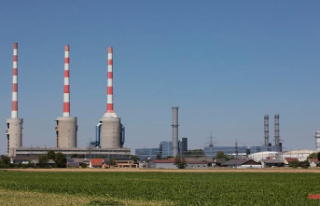For months, people besieged the presidential office in Sri Lanka. After his predecessor fled abroad, the new president used violence against the protesters: the police and military stormed the main protest camp with around 1,000 men.
In the crisis-ridden country of Sri Lanka, a massive contingent of security forces stormed and broke up the main anti-government protest camp near the presidential office. According to the police, nine people were arrested when around 1,000 police officers and soldiers were deployed and later released on bail. A spokesman said 14 injured protesters were taken to the National Hospital after the raid.
The people's protest is directed, among other things, against the new President Ranil Wickremesinghe, who was sworn in a few hours earlier. They see him as a representative of the power elite around ex-president Gotabaya Rajapaksa, who fled abroad after unprecedented mass protests. Sri Lanka is mired in a severe economic and financial crisis, which people blame on mismanagement by the political leadership. Long-standing member of the ruling party, Dinesh Gunawardena, was sworn in as the new head of government together with 17 ministers. Gunawardena, 73, had previously been appointed by the new president. The new prime minister is also considered a long-time loyal supporter of the ex-president who fled.
Widely unpopular new President Ranil Wickremesinghe said at his inauguration that any attempt to overthrow the government or occupy government buildings is not democracy but against the law. A few hours later, the storming of the main protest camp began. According to their own statements, the police wanted to ensure that the new president could work in his office again.
Protesters had held out for months in a camp next to the president's office. They also stayed on the steps of the building. According to police, around 200 people were present at the time of the raid. Forces tore down tents and banners at the presidential office and erected barricades. Some protesters gathered around 100 meters away from the main protest site. "We will stay in the area where we are camping," said protester Senadhi Guruge.
According to the police, around 400 people demonstrated in the capital on Friday. Lawyers who wanted to go to the former main protest camp on Friday were attacked by emergency services, the bar association said. At least one lawyer and several journalists were also arrested. The chamber called on President Ranil Wickremesinghe to ensure that he and his government respect the rule of law and people's fundamental rights. They condemned the attack on the protesters.
The country's Human Rights Commission also called the attack a complete violation of basic human rights. The violent crackdown on the protesters could disrupt negotiations between the heavily indebted country and the International Monetary Fund (IMF). Sri Lanka has also asked the IMF for help in the face of its worst economic crisis in decades. Saliya Pieries, of the country's Bar Association, said the unnecessary use of brute force was not good for Sri Lanka's international reputation.
The island state south of India with its approximately 22 million inhabitants was once considered the new Singapore, an up-and-coming country with a growing middle class. People now have to queue at gas stations for days to get petrol or diesel. The power goes out regularly. There is no gas for cooking or medicine, and food prices have risen sharply. The heavily indebted country lacks the money to import important goods. Due to the lack of fuel and the resulting transport problems, many schools and offices were recently closed.
The reasons for the crisis are manifold: mismanagement and corruption play a role, but also the consequences of the corona pandemic, which have hit the important tourism sector particularly hard. Because of the crisis, tens of thousands of people have taken to the streets against the political leadership in recent weeks. Many of them also blame the family of the ex-President Rajapaksa, who are part of the country's power elite.












